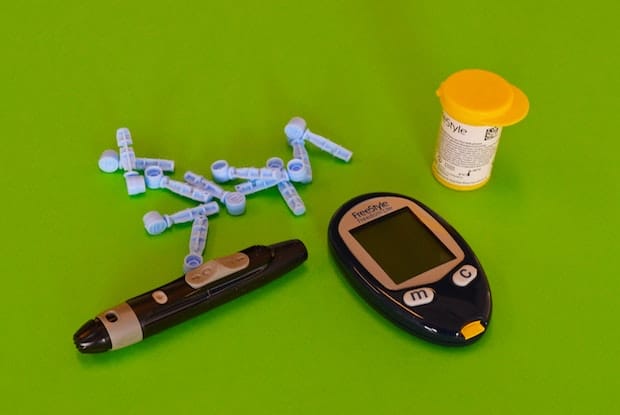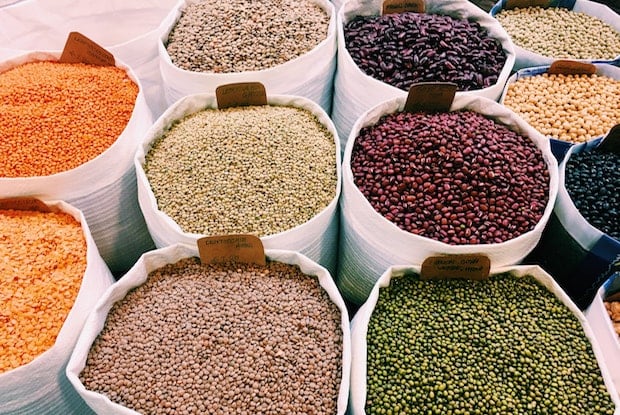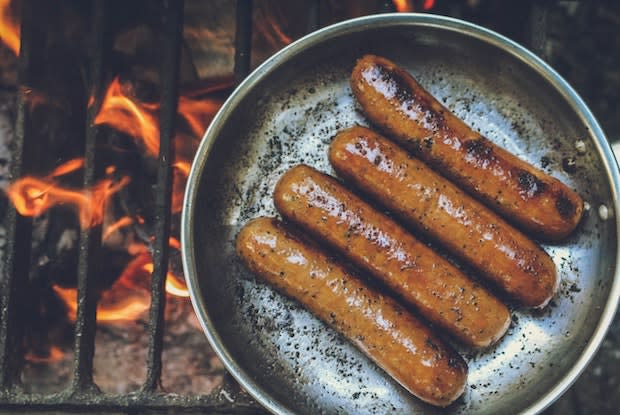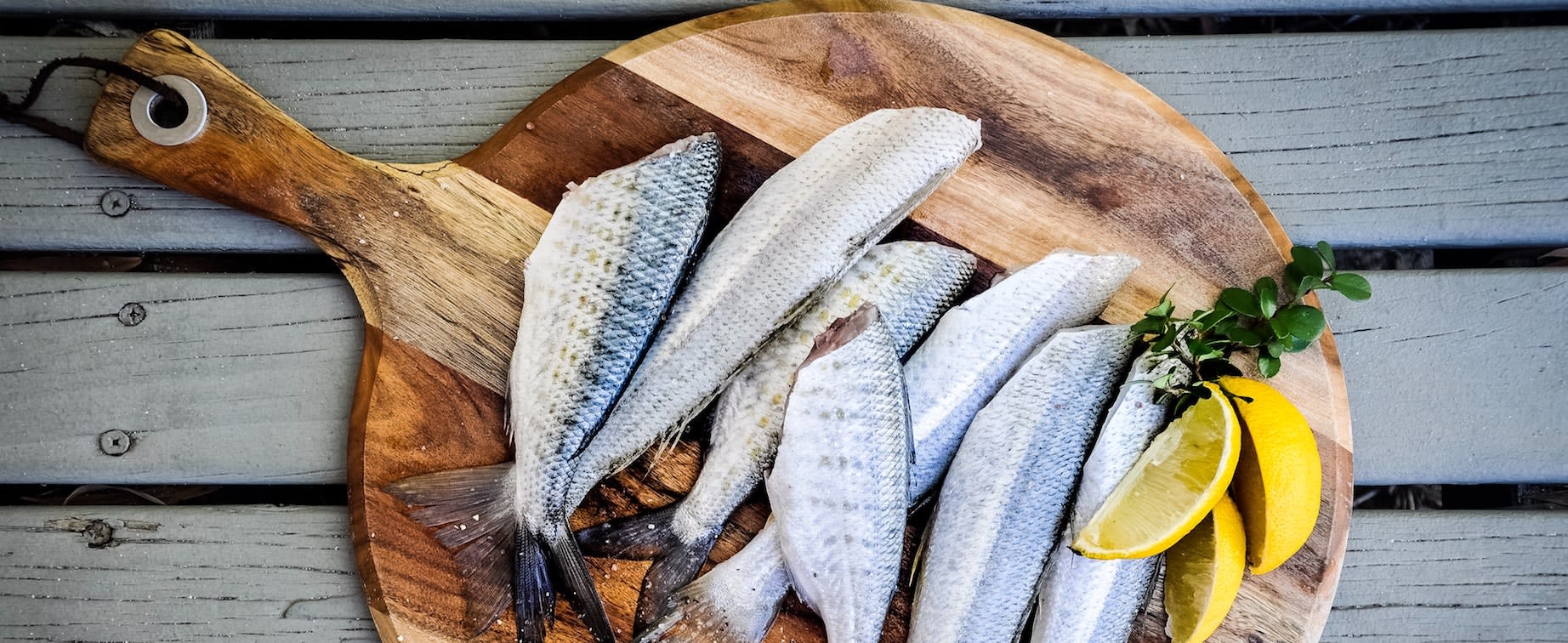Table of Contents
III. Recommended Foods for Diabetes
What is Diabetes?
Diabetes is a common condition that affects around 34 million Americans, more than 10 percent of the population. Additionally, around 88 million people in the United States have prediabetes. [1] Prediabetes is a condition where patients have a higher than a healthy level of blood sugar, although it is not high enough to be diagnosed as diabetes. [2]
There are two types of diabetes; type 1 diabetes and type 2 diabetes. Type 1 diabetes occurs when the body does not produce sufficient amounts of the hormone insulin. Patients with type 2 diabetes produce insulin but are unable to use it sufficiently. When functioning correctly, insulin is used by the body to control the levels of glucose in the blood. Glucose (blood sugar) is produced naturally by the liver but is also found in the foods and drinks that we consume.
There are several medications that can be used alongside your diet to control levels of blood sugar. Type 1 diabetes patients will need to take insulin, either via a pump or through injections. For type 2 diabetes patients, medications such as metformin (Glucophage) and sitagliptin (Januvia) can help your body use insulin more effectively.

If you have diabetes, then you will need to be careful with your diet to help to control your blood sugar levels. Keep reading to learn about which foods are recommended for type 2 diabetes patients and which foods you should avoid.
What is a Diabetes Diet?
A diabetes diet is simply a diet that will help you keep control of your blood sugar levels. While this article will include recommended foods to eat and suggested foods to avoid, they are just that –recommendations and suggestions. As with all healthy eating plans, the key is balance and moderation. You can still enjoy your favorite treats, but it should be part of a diet plan.
People that have diabetes should try and eat three meals a day at regular times. Regular meals can help your body use insulin more effectively. [2]
Recommended Foods for Diabetes
a. Healthy Carbs
Carbohydrates are an important part of any diet. Carbohydrates also have the biggest effect on your blood sugar levels and raise them faster than fats or proteins. [3] For people with diabetes, carbohydrates should mainly come from healthy sources like fruits, vegetables, legumes, and whole grains. [2] These foods are also high in fiber, which is also beneficial as they take longer to digest, keeping you feeling full for longer.

b. Fatty Fish
Certain types of fish are great for people with diabetes. Fish that are rich in omega-3 fatty acids, such as salmon, tuna, mackerel, and anchovies have lots of benefits for your heart. People with diabetes may have an increased risk of heart disease so this is a great choice for protein. High-quality protein also helps stabilize your blood sugar levels. [4]
c. Green Leafy Vegetables
Green, leafy vegetables such as cabbage, broccoli, spinach, and bok choy are great choices for people with diabetes. These veggies have plenty of vitamins and nutrients and also provide the body with protein and fiber. Even better, they have very little impact on your blood sugar levels so there’s no need to worry about loading them onto your plate. [5]
d. Good Fats
Eating too much fatty food is not good for anybody’s health. However, some fats are better for you than others. ‘Good’ fats help lower your cholesterol levels and protect you from heart disease. However, these fats are still high in calories and should still be eaten in moderation. [6] Examples of ‘good fats’ include fish, nuts, olives, avocados, and extra virgin olive oil. [2]
Diabetes Foods to Avoid
a. High-Sugar Foods
This is an obvious place to start. Foods and drinks that are high in processed sugar, such as candy, soda, and certain desserts can cause sharp and sudden spikes in your blood sugar. These types of foods also have little nutritional value. For people with prediabetes, a high sugar diet can increase your risk of developing type 2 diabetes. Drinking a 12oz sugary beverage on a daily basis can increase the chance of developing diabetes by around 15 percent. [7]
b. Saturated Fats
Saturated fats are often found in fatty animal proteins such as bacon, sausages, and full-fat dairy products. These types of fats raise your cholesterol levels. High levels of ‘bad’ cholesterol increase your risk of cardiovascular disease (CVD), which is already a risk for diabetes patients. [8]

c. Trans Fats
Trans fats are also known as hydrogenated fats or partly hydrogenated oil. These are liquid oils that become solid fat and are found in margarine, processed foods, and fast foods. Once again, trans fats are very bad for your heart. Even if the label says that is ‘trans-fat-free,’ anything that mentions being partly hydrogenated should be avoided. [3]
d. Sodium
People with diabetes should also watch their levels of sodium (salt). Eating less sodium can help prevent high blood pressure (HBP). HBP is another condition that is more likely in people with diabetes. [3]
The content in this article is intended for informational purposes only. This website does not provide medical advice. In all circumstances, you should always seek the advice of your physician and/or other qualified health professionals(s) for drug, medical condition, or treatment advice. The content provided on this website is not a substitute for professional medical advice, diagnosis, or treatment.
